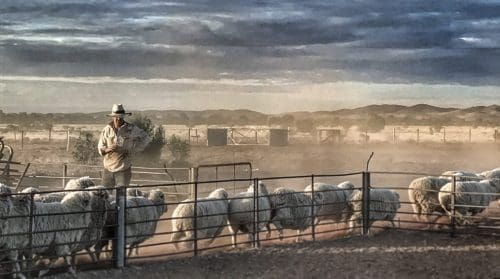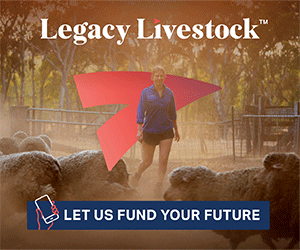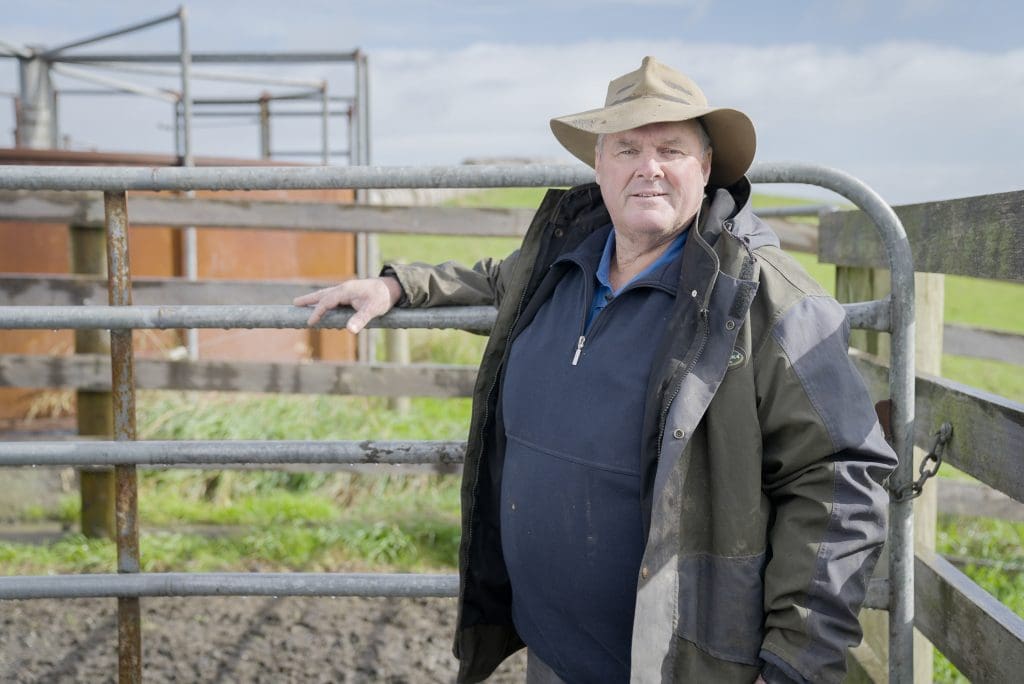- Livestock Buyer – Vic (SAILS)
- General Manager – WA (Beilby Downing Teal client)
- Aggregation Manager, Gragin NSW (Faulkner Farming)
- Operations & Compliance Manager NSW (Rimfire client)
- Program Coordinator, Innovation NSW (Rimfire client)
- National Communications Manager, Melbourne VIC (Rimfire client)
- Industry Engagement Coordinator, Melbourne VIC (Rimfire client)
- Livestock Overseer – SA (Lucas Group)
- Assistant Farm Manager – Vic (Rimfire client)
- Commodity Analyst, Melbourne – Vic (Rimfire client)
- Business Process Analyst, Newcastle Waters NT (CPC)
Click here to access these and other exciting meat and livestock supply chain jobs currently listed on AgJobs Central.

Relevant data
- In 2022, eight people died in the Victorian agriculture industry, and a further 597 people working in the sector were injured seriously enough to receive workers compensation.
- On average in Victoria, almost one person every week is injured seriously enough while working with cattle to receive workers compensation.
- Since 2018, there have been 367 agriculture-related injury claims in the Gippsland region
THE idea that a serious incident won’t happen to ‘experienced’ farmers or graziers can be common in agriculture, but after responding to dozens of farm emergencies, rural paramedic Jess Shepherd wants people working in ag to know that everything can change “in the blink of an eye.”
Jess, who has been with Ambulance Victoria for 13 years, draws on her experience with farmers across the Gippsland region to have conversations about safer farm practices.
“We’re lucky enough to have that trust as soon as we walk in, wearing this uniform, and I think that really helps when we give advice and when we express concern about safety,” she said.
 In sharing her experiences as part of WorkSafe’s farm safety campaign, Jess reflected on one horrific incident involving an experienced farmer that has stuck with her.
In sharing her experiences as part of WorkSafe’s farm safety campaign, Jess reflected on one horrific incident involving an experienced farmer that has stuck with her.
“Despite having used the equipment hundreds of times before, a piece of machinery came down on her limb,” she said.
“When we arrived, it wasn’t bleeding profusely, but then as soon as she let go of it, there was a lot of blood, and we could already tell that she would probably lose the limb.”
Jess later learnt the limb had in fact been amputated and the farmer could no longer work her property.
This devastated her – a reminder that experience doesn’t make someone immune.
As WorkSafe Victoria’s awareness campaign, “It’s never you, until it is”, makes a return with new advertising across television, radio, print and digital media, it’s offering practical safety solutions for farmers and encouraging conversations around health and safety.
Tragically, three people in Victoria have been killed in the agriculture industry this year. This takes the number of agriculture-related deaths to 34 since 2019.
Value of communication
Communication and proactive safety measures can be the difference between life and death for Paul and Taylor Wallace, who farm sheep at Ballangeich in Victoria’s Western district.
“We take a proactive approach to safety. If something is broken, it can’t be used until it’s fixed. Things like making sure that everyone knows that if they’re on the quad bike, they must wear a helmet,” Paul says.
“Common sense will only get you so far. Proper training and inductions for our staff must come into play because we can’t rely on common sense,” said Taylor.
WorkSafe executive director of Health and Safety Narelle Beer said every conversation about safety on farms helped shift the dial to prioritising safety.
“We’re working towards health and safety being a key part of farming operations, where raising concerns before they become larger issues and sharing beneficial safety advice are encouraged,” Dr Beer said.
“Things like good communication when working alone, checking in with yourself and others for signs of fatigue, prioritising maintenance and taking a minute to think through a job can all make a big difference for safety.”
Jess Shepherd from Ambulance Victoria echoed these sentiments.
“I’ve found that farmers are used to just pushing through and their bucket just fills up, drip by drip until eventually, the bucket overflows.”
“There should always be things in place to reduce the likelihood of having that bucket overflow. Part of that is asking for help. Show the same concern for yourself as you would others.”

Farmer case study:
Almurta cattle farmer Peter, pictured above, is a first-generation farmer who has spent the past 15 years breeding cows and calves. For Peter, it’s the lifestyle and finding ways to be more efficient that makes farming enjoyable.
“We make repairs to the yard because it makes it more enjoyable to work in. If the yards are functional and well maintained, it’s just so much better for us and the cattle,” he said.
As a livestock producer with homemade yards, Peter’s working on getting his facilities as good as they can be and has seen a lot of yards with plenty of room for improvement.
“My yards are homemade, but it shows that any farmer can build a set of safe yards,” he said.
“When we first came here, the yards were traditional old timber stockyards. They were very low and cattle were jumping out of them all the time. Our new yard design is based on a round yard principle and when we’re working cattle in the yard, we’re probably three to four times more efficient than we were before.
“Stockyards are a dangerous place. I was loading cattle myself one day in the race, where you shouldn’t be, but there’s no other option because of the way it was designed and built.
“The worst thing happened because a heifer was coming out of that truck, and there was nowhere for me to go. I was quite lucky that she wasn’t big and we managed to both pass one another in the race but if she had knocked me down, she would have gone straight over the top of me.
“The lucky people can tell you a story like that,” Peter said.
Near-miss experiences like this are part of the reason Peter has since made changes to how he and livestock transporters load cattle on his property.
“When we first started in Almurta the stockyards were reasonable, but there was no walkway. We’re now in the process of upgrading the loading ramp,” je said.
“We’re putting a walkway down the side, gates at the front, an end gate and a walkway around the force pen. This will mean there’s no need for the truck driver to be behind or in with the cattle at any time. It’ll be a lot safer for transporters.”
But Peter knows it’s not just yard design and maintenance that keeps farmers safe.
“Awareness of your surroundings and understanding the animals you work with are essential components of farm safety,” he said.
“In the yard you need to be careful with cows and have cattle awareness. That’s more than anything else – being aware of where you are, and always having a plan B.”
“You’ve always got to be thinking one step ahead of yourself, not one step behind,” he said.
For Peter, safety is something he is continuously building on over time.
“What we would really like to do is put a roof over the yards. I’m 65 and it will happen, but that’s just an example of how you don’t do things in five minutes. If we had another two good years of cattle prices, I’d put a roof over my yards. A roof will make the yards safer as there won’t be as much slop on the ground, and it will be more enjoyable to work in there,” he said.
While improving and making big changes to his yards takes time, Peter always welcomes feedback from others in the industry including livestock agents and transporters.
“I usually let the more experienced person run the show and quite often if it’s a stock agent I’ll say to them, where would you like me to be or what do you want me to do?”
“When we get feedback from contractors or the stock agent on ways to improve, we look at it and how we can make those changes.”
The fundamental basics to enjoyable farming
While Peter admits he’s guilty of thinking he’ll fix something the next day and then doesn’t, he also knows spending ten minutes to hang a gate can make a life-saving difference for everyone on-farm.
“As a farmer, we have a responsibility – first of all to my family and to everybody else that comes onto the farm,” he said.
“For our contractors, for our stock agents, the transporters, anybody that comes onto the farm, we have an obligation to look after them.
“It’s my responsibility to make sure people go home safe every night.”
- Alongside the beef cattle industry, WorkSafe Victoria has developed new cattle handling information to help keep everyone safe. Visit worksafe.vic.gov.au/safer-cattle-handling

HAVE YOUR SAY